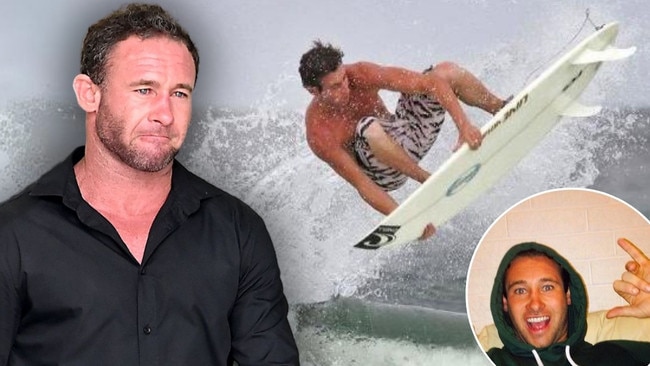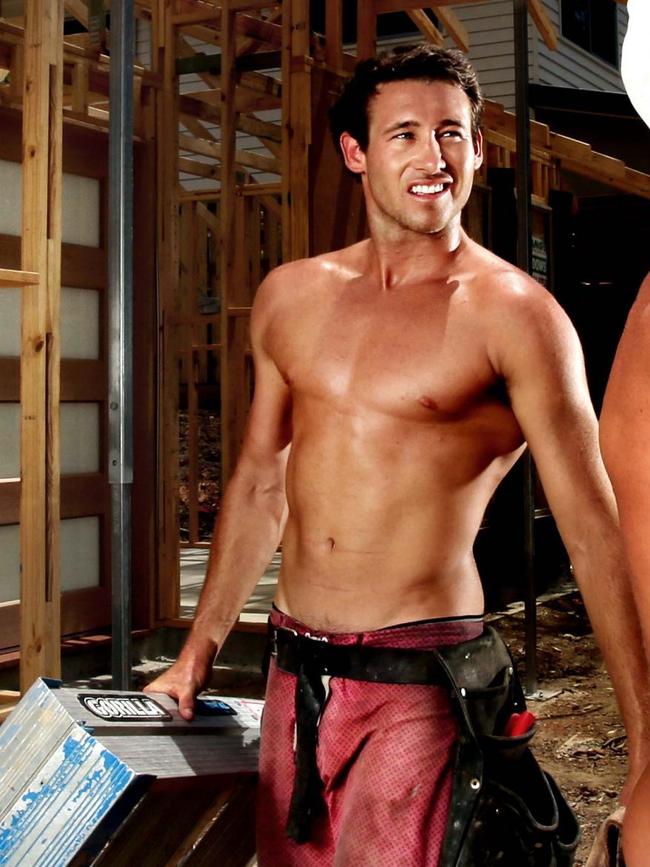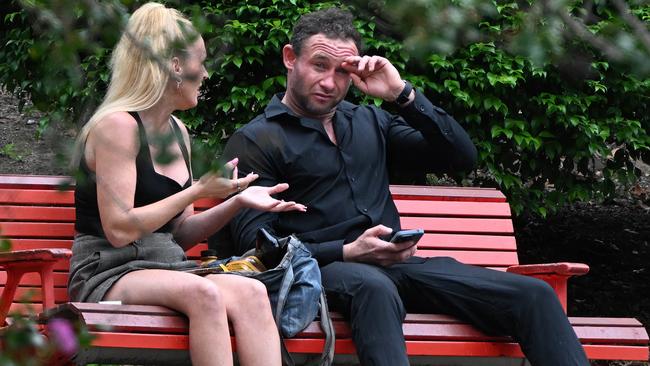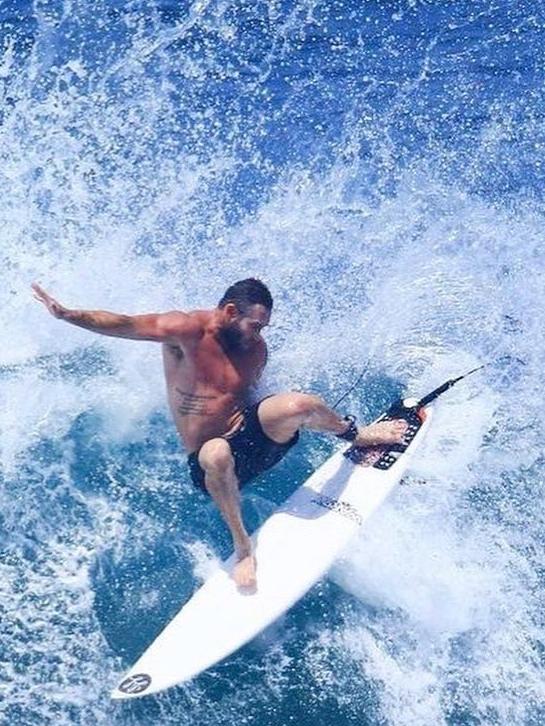Lawson Gerard Hayles: Ex-pro surfer fronts court on cocaine, ice trafficking
An ex-pro surfer who was part of a major drug syndicate that made 500-plus sales to 200 customers kept a spreadsheet of transactions that showed $467,000 of cocaine and ice deals.

Police & Courts
Don't miss out on the headlines from Police & Courts. Followed categories will be added to My News.
An ex-pro surfer who tried to smuggle cocaine from Europe hidden in a gaming console and who helped a syndicate sell $467,795 of drugs in Queensland has walked free on a suspended sentence after the judge accepted he was at risk of “suffering further violence”.
Lawson Gerard Hayles was in the Supreme Court in Brisbane on Thursday before
Justice Peter Callaghan where he pleaded guilty to nine drug related charges including of trafficking in cocaine and the drug ice.
“You are a living example of the disasters that await those who involve themselves with drugs,” Justice Callaghan said.
He was given a wholly-suspended five-year sentence for drug trafficking and three years prison with immediate release for attempting to possess a marketable quantity of unlawfully imported cocaine at Tugun between September 24 and October 12, 2021.

For this charge he was also given a five-year good behaviour bond after payment of $2000.
Commonwealth prosecutor Patrick Wilson told the court that the now 37-year-old “was more than a mere courier” but that it was “difficult to place him in terms of how high up” he was within the hierarchy of the drug ring.
Hayles was on bail for trafficking in cocaine on the Gold Coast when he was arrested by the Australian Federal Police for trying to smuggle 1.5kg of powder containing 426g of pure cocaine from Portugal in the Sony PlayStation console in the mail.
Mr Wilson said the drug package was intercepted in the mail system and police substituted the drugs.
It was collected from Tweed Heads post office by a co-accused who delivered it to Hayles in a Tugun apartment, where he was arrested, the court heard.
Justice Callaghan said he was satisfied that Hayles was more than a mere drug courier.
State prosecutor Sarah Macfarland submitted Hayles was part of a syndicate that made over 500 sales to at least 200 customers over a year from November 2019 to November 2020, and used encrypted app Wickr to make sales on the Gold Coast.
He kept a sales spreadsheet found by police showing the syndicate sold $467,795 of cocaine and ice between November 20, 2019 and May 10, 2020, Ms Macfarland said.
She said Hayles regularly sold drugs from his house, travelled to meet customers, but also left drugs in his letterbox for customers to collect, or to deliver via Uber.
His customers lived in Broadbeach, Burleigh Heads, Miami, Kirra, Kingscliff, Palm Beach, Tallebudgera and Tweed Heads, the court heard.

Defence counsel Matthew Hynes submitted that Hayles, a carpenter, had a gun held to his head to force him to take part in selling drugs and allowing his home to be used to store drugs in 2019.
Mr Hynes said his client was later burned with hot irons and his eye socket was fractured with a hammer by people who broke into his boxing gym in October 2022, and in a separate incident men armed with poles “shattered” his leg at the same gym.
He said that his client was sent a message on Wednesday threatening that he would be sexually violated “by members” of a gang if he is jailed.
Justice Callaghan accepted that it had been established that a gun was held to Hayles’ head to ensure he kept working for the drug ring and that the specific threats to Hayles’ safety were real.
He concluded that Hayles’ did not need to serve actual jail time because his case was “unique” due to the “really quite horrific” violence inflicted on him, and documented in hospital records and photographs, as there was a “a real risk” of him “suffering further violence” in prison or in the community.

He also accepted that Hayles had “endured real suffering” because of his role in the drug world including “two horrific attacks” and must have felt “immense physical pain”, and this should be taken into account in sentencing.
“By your activities with these drugs you spread a lot of misery in, and did a lot of damage to, the community,” he said.
“It is accepted, however, that you were operating under some duress and that threats were being made to ensure your ongoing assistance to the syndicate,” Justice Callaghan said.
Until he turned 33 years old, Hayles was leading a blameless life and was a carpenter, but he turned to cocaine after the death of a friend, the court heard.


